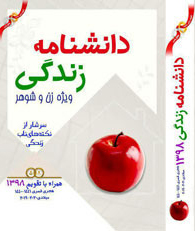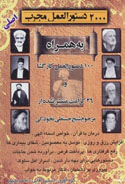What Is the Hadith of al-Ghadir?

What Is the Hadith of al-Ghadir?
The Hadith of al-Ghadir counts as one of the crucial, significant, and historic Hadiths enunciated by the Messenger of God, upon whom and whose household be blessing, in the last year of his blessed lifespan. It serves to establish the Imamate of the Commander of the Faithful Imam ‘Ali ibn Abi Talib, upon whom be peace and clarifies his guardianship and mastership over all the believers after the guardianship and mastership of God and his Messenger in an explicit manner.
Moreover, the Hadith is widely and successively transmitted (mutawatir) [1], being reported by the traditions from the Companions of the Prophet, upon whom and whose household be blessing, and their followers in different expressions, all denoting the Imamate of the Commander of the Faithful, upon whom be peace. For its original purport is single, even though the modes of expression are multiple.
It is called as the Hadith of al-Ghadir because the Prophet, upon whom and whose household be blessing, has put it forward at a place called Ghadir Khumm [2] before a large number of people who exceeded one hundred thousand Muslims, after his return from the rites of the hajj in the last year of his blessed lifespan.
The Sunni and Shiite sources alike have transmitted the Hadith of al-Ghadir in their books of Qur’an commentary, Hadith, history, scholastic theology, etc in more than ten modes of expression, and in about one hundred authentic books.
As for the reporters of the Hadith whose names history could record, they are 110 Companions, 84 followers in the succeeding generation, and 370 traditionists and scholars of Hadith.[3] As well, a group of Muslim scholars have written books on this Hadith in compliance with its significance, its authenticity and its crucial implications.[4] Here we will make mention of a number of the samples brought forward by the Sunni scholars in their book for the sake of abridgement. For more information you may refer to the sources of Hadith.[5]
1. Ahmad ibn Hanbal (d. 241 A.H.), Abu Abd Allah ibn Hilal al-Shaybani, reported from al-Bara’ ibn ‘Azib that he said: We were in the company of the Messenger of God, upon whom and whose household be blessing, on a journey when we stopped at Ghadir Khumm. He ordered the crier to call out: Assemble for prayer! So a spot under two trees was swept off for the Messenger of God, upon whom and whose household be blessing, where he performed the noon prayer. Thereupon, he took ‘Ali (may God be pleased with him) by hand and said: Don't you know that I have a great claim upon the believers than their own souls? To which they answered: Certainly yes! He said: Don't you know that I have a greater claim upon each believer than his own soul? To which they replied: Certainly yes! So he took ‘Ali by hand and said: For whoever has me as his master and guardian (mawla), ‘Ali is his master and guardian. O God! Befriend whoever befriends him and show enmity to whomever shows enmity to him! Thereafter, ‘Umar encountered him and said to him: May it be productive of enjoyment to you, O Ibn Abi Talib! You have entered upon the time of morning and evening as a master and guardian over every faithful man and woman.[6]
2. Al- Khatib al-Baghdadi (d.463 A.H.), Abu Bakr Ahmad ibn ‘Ali, reported from Abu Hurayrah that Be said: He who fasts on the eighteenth day of Dhu al-Hijjah, (the reward for) the fast of six months will be written for him, for it is the day of Ghadir Khumm, on which the Messenger of God, upon whom and whose household be blessing, Took ‘Ali ibn Abi Talib, upon whom be peace, by hand and said: Don’t I have a greater claim upon the believers? To which they replied: Certainly yes! So he said: For whoever has me as his master and guardian, ‘Ali is His master and guardian. Thereupon, ‘Umar ibn al-Khattab said: Bravo! Bravo! O Ibn Abi Talib! You have become my master and guardian and the master and guardian of every Muslim.[7]
3. Ibn Hajar (d. 974 A.H.), Ahmad al-Haythami, reported that the Prophet, upon whom and whose household be blessing, said on the day of Ghadir Khumm thus: For whoever has me as his master and guardian, ‘Ali is His master and guardian.O God! Befriend whoever befriends him, show enmity to whoever shows enmity to him, love whoever loves him, detest whoever detests him, help whoever helps him, abandon whoever abandons him, and cause the truth to turn with him wherever he turns.
About the Hadith of al-Ghadir, Ibn Hajar said: It is a sound Hadith wherein there is no doubt. It has been transmitted by a group such as al-Tirmidhi, al-Nasa’i, and Ahmad. Its paths are multiple, and so 16 companions have narrated it. In a narration by Ahmad (ibn Hanbal) it is reported that 30 Companions heard it from the Prophet, upon whom and whose household be blessing, and testified to it in favour of ‘Ali when he was contended during his caliphate.[8] Moreover, a great number of its chains of transmission are sound and good, and there can be no question of disputing its authenticity.[9]
From what has been put forward the following points can be concluded:
1. The Messenger of God, upon whom and whose household be blessing, has only enunciated the Hadith by the command of God (high exalted be He) after the revelation of the verse of ‘delivery, namely’, “O Messenger! Deliver that which has been sent down to you from your Lord, for if you do not, you will not have delivered his message. God will protect you from men. God does not guide the people of the unbelievers”, [10] on the day of al-Ghadir, inciting him to set up Imam ‘Ali ibn Abi Talib, upon whom be peace, as his vicegerent and an Imam for mankind. [11]
2. When we reflect upon the foregoing verse and its sharply worded tone and consider His words, “God will protect you from men”, we come to appreciate the sensitivity of the problem and momentousness of the question put forward.
3. The selection of Ghadir Khumm, a dry desert that is scorched by the midday heat and whose sand is burnt by the glare of the sun, as a spot for the communication of the Hadith, the selection of the last phase of the lifespan of the Messenger, upon whom and whose household be blessing, as a time for its declaration, the selection of the historic assembly represented by the hajj pilgrims coming back from the sacred House of God as listeners to this significant historic address, etc only express the consequence of that which God has commanded the Prophet, upon whom and whose household be blessing, to deliver, that serves to determine the course of the leadership of the Muslim community on the religious and political level.
4. Any failure to deliver to people the mastership and guardianship of the Commander of the Faithful, upon whom be peace, by the Prophet, upon whom and whose household be blessing, is equivalent to failure to communicate the divine message – which clarifies the significance of the question of Imamate and leadership, as understood by His words, “for if you do not, you will not have delivered his message”.
5. God’s wise and perfect plan cannot overlook the question of the leadership of the Muslim community after the Prophet, upon whom and whose household be blessing, without a guide or leave the community without a shepherd or a guardian, for that would drive the community into falling into the abyss of temptations, conflicts, and contradictions and would result in the futility of the efforts of the divine message – which can neither be approved by reason nor attested by the revealed law whatsoever.
6. The revelation of the verse of perfection, namely, “Today I have perfected your religion for you, and I have completed My blessing upon you, and I have approved Islam for your religion” [12], on the day of al-Ghadir after the Prophet, upon whom and whose household be blessing, has delivered the mastership and guardianship of the Commander of the Faithful ‘Ali ibn Abi Talib, upon whom be peace, is a very good argument for the fact that the perfecting of the goals of the Message and the securing of the absence of any deviation or gap, be it legislative or administrative or political, can only be realized in case of the continuity of a leadership that is explicitly installed and designated by God.
7. In light of the foregoing points we can grasp the depth of the relation between the Qur’anic prooftexts [13] and the great historic event on the day of al-Ghadir through which the caliph and Imam has been installed on the part of the Lord of the worlds by means of His Trustworthy Messenger, upon whom and whose household be blessing. [14]
8. Finally the Hadith gives a clear and explicit indication of the Imamate of the Commander of the Faithful ‘Ali ibn Abi Talib, upon whom be peace, considering that he is the only candidate for taking the reigns of power after the Prophet, upon whom and whose household be blessing, and he is the rightful guardian explicitly installed by the Lord of the worlds by means of the master of the Prophets and Messengers, upon whom and whose household be blessing. As well, God (high exalted be He) has regarded this affair as a perfection for the message and a completion for the blessing according to His words: “Today I have perfected your religion for you, and I have completed My blessing upon you, and "I have" approved Islam for your religion”.
9. For more information about the Hadith of al-Ghadir and for further accurate and extensive study of its dimensions, you may refer to the following books:
1- Al-Ghadir fi al-Kitab wa al-Sunnah wa al-Adab (The Ghadir in the Book, the Sunnah, and Literature), by the great scholar Shaykh ‘Abd al-Husayn al-Amini.
2- Al-Muraja‘at (Correspondences), by the great scholar Sayyid ‘Abd al-Husayn Sharaf al-Din al-Musawi.
Collection & Translation by www.darolhadith.net
1- A group of Sunni scholars have declared the wide and successive transmission of the Hadith of al-Ghadir, just as another group have confessed its authenticity.
Here is, among others, a number of them:
a) Al-Ghazzali (d. 505 A.H.), Abu Hamid Muhammad ibn Muhammad, in his book Sirr al-‘Alamin (the Mystery of All Beings), published in Egypt, p.13.
b) Shams al-Din al-Shafi‘i (d. 833 A.H.), Abu al-Khayr ibn Muhammad ibn Muhammad ibn al-Jazri, in his book Asna al-Matalib (the Highest of the Issues), published in Iran, P.47.
c) Al-Qastalani in his book Sharh al-Mawahib al-Laduniyyah (An Exposition of God-given Gifts), published in Cairo, vol. 7, p.13.
d) Al-Mansur Billah (d. 1050 A.H.), al-Husayn ibn Amir al-Mu’minin al-Mansur Billah al-Qasim ibn Muhammad, in his book Hidayat al-‘Uqul ila Ghayat al-Sa’ul fi ‘Ilm al-Usul (the Guidance of Intellects into the Goal of the Curious Inquirer about the Discipline of Principles), published in Yemen, vol.2, p.45.
2- Ghadir Khumm is a spot between Mecca and Medina, in the vicinity of al-Juhfah, one of the points at which pilgrims consecrate themselves for the hajj or the umrah.
3- For further knowledge of the reporters of the Hadith of al-Ghadir refer to al-Ghadir fi al-Kitab wa al-Sunnah wa al-Adab, by the eminent author Shaykh Abd al-Husayn al-Amini (d. 1390 A.H.)
4- For further knowledge of the writers on the Hadith of al-Ghadir refer to al-Ghadir fi al-Kitab wa al-Sunnah wa al-Adab, vol.1, pp.152-157.
5- The sources which have made mention of the Hadith of al-Ghadir are too numerous to be listed here. Below we refer to a number of them:
a) Musnad Ahmad ibn Hanbal (Beirut: Dar Sadir), vol.4, p. 368.
b) Khasa’is Amir al-Mu’minin by al-Nasa’i (Beirut), p.98.
c) Al-Sirah al-Halabiyyah (Beirut: Dar Ihya’ al-Turath al-‘Arabi), vol.3, p. 274.
d)Kanz al-‘Ummal (Halab: Manshurat al-Turath al-Islami), vol. 5, p. 290.
6- Musnad Ahmad ibn Hanbal, vol.4, p.281.
7- Tarikh Baghdad, vol.8, p.290.
8- It is worth noting here that when the Commander of the Faithful Imam ‘Ali, upon whom be peace, was contended in respect to caliphate, he assembled people in al-Rahbah and required them to tell what they had witnessed, saying: I adjure everyone by God to stand up and give testimony to what he had heard (from the Messenger of God on the day of al-Ghadir)! Let no one stand up but he who had seen with his eyes and heard with his ears! So thirty Companions, among whom were twelve who took part in the Battle of Badr, rose and testified. Sayyid 'Abd al-Husayn Sharaf al-Din (may God sanctify his pure soul) said: It should not be hidden that the day of al-Rahbah was during the caliphate of the Commander of the Faithful, and he had the oath of allegiance made to him as being caliph in the year 35 A.H, while the day of al-Ghadir was during the Farewell Pilgrimage in the year 10 A.H. Based on this, between the two days are, at least, twenty-five years, throughout which there were fatal plague, wars of conquests, and expeditions. During all that time, which covered the era of the three caliphs, along with its span, its wars, its raids, and its fatal plague, most of those who witnessed the day of al-Ghadir, including the old and middle-aged men of the Companions were then dead, let alone the youths who would hasten to strive and encounter God (high exalted be He) and His Messenger, upon whom and whose household be blessing. Hence, none remained alive in comparison with the dead but very few of them who scattered themselves in the land. See al-Muraja‘at, p.172.
9- Al-Sawa‘iq al-Muhriqah fi al-Radd ‘ala Ahl al-Bida‘ wa al-Zandaqah, p.64.
10- The Holy Qur’an 5:67.
11- A great number of the Qur’an commentators declared that the verse of 'delivery' was revealed on the day of al-Ghadir upon the Prophet's return from the Farewell Pilgrimage at a place called Ghadir Khumm. Below we refer to a group of them:
a) Abu al-Fadl Shihab al-Din Mahmud al-Alusi al-Baghdadi reported from Ibn 'Abbas that he said: The verse, “O Messenger! Deliver that which has been sent down to you from your lord”, was revealed concerning ‘Ali, wherein God (glory be to Him) ordered him to inform people of his guardianship and mastership. However, the Messenger of God, upon whom and whose household be blessing, feared that they might say he favoured his cousin, and so they would hurt him.
Thereupon, God (high exalted be He) revealed to him, so he communicated his mastership and guardianship on the day of al-Ghadir, took him by hand, and said: For whoever has me as his master, ‘Ali is his master. O God! Befriend whoever befriends him and show enmity to whoever shows enmity to him. See Ruh al-Ma‘ani, vol.4, p. 282.
b) Abu al-Hasan ‘Ali ibn Ahmad al-Wahidi al-Naysaburi (d. 468 A.H.) reported from Abu Sa‘id al-Khudri that he said: This verse, “O Messenger! Deliver that which has been sent down to you from your lord”, was revealed on the day of Ghadir Khumm concerning ‘Ali ibn Abi Talib (may God be pleased with him).
See Asbab al-Nuzul, p.115.
C) ‘Ubayd Allah ibn ‘Abd Allah ibn Ahmad, known as al-Hakim al-Haskani, a scholar of the fifth century, reported from Ibn 'Abbas that he said with regard to His words, “O Messenger! Deliver that which has been sent down to you from your lord”: It was revealed concerning ‘Ali, wherein the Messenger of God, upon whom and whose household be blessing, was ordered to communicate in respect to him. So the Messenger of God, upon whom and whose household be blessing, took ‘Ali by hand and said: For whoever has me as his master, ‘Ali is his master. O God! Befriend whoever befriends him and show enmity to whoever shows enmity to him. See Shawahid al-Tanzil, vol. 1, p.190.
d) Fakhr al-Din al-Razi (d. 604 A.H.): From among the aspects put forward in respect to the occasion of the revelation of the verse, “O Messenger! Deliver that which has been sent down to you from your lord”, he pointed out that it was revealed concerning Imam ‘Ali, the Commander of the Faithful, upon whom be peace. He accounted it the tenth aspect from among the mentioned aspects.
He thus said: The verse was revealed concerning the superiority of ‘Ali ibn Abi Talib, upon whom be peace. When this verse was revealed, he took him by hand and said: For whoever has me as his master, ‘Ali is his master. O God! Befriend whoever befriends him and show enmity to whoever shows enmity to him. Thereupon ‘Umar encountered him and said: may it be productive of enjoyment to you, O Ibn Abi Talib! You have become my master and guardian and the master and guardian of every faithful man and woman. It is also what Ibn ‘Abbas, al-Bara’ ibn ‘Azib, and Muhammad ibn ‘Ali maintain. See al-Tafsir al-Kabir, vol. 12, p.42.
e) Jalal al-Din al-Suyuti (d. 911 A.H.): He reported from Abu Sa‘id al-Khudri that he said: This verse, “O Messenger! Deliver that which has been sent down to you from your Lord”, was revealed to the Messenger of God on the day of Ghadir Khumm concerning ‘Ali ibn Abi Talib. See al-Durr al-Manthur, vol. 3, p. 117.
12. The Holy Qur’an 5:3.
13. By the Qur’anic prooftexts is meant the following verses:
a) The verse of delivery: “O Messenger! Deliver that which has been sent down to you from your lord, for if you do not do, you will not have communicated His message. God will protect you from men. Surely God does not guide the people of the unbelievers” (5:67).
b) The verse of perfection: “Today I have perfected your religion for you, and I have completed My blessing upon you, and I have approved Islam for your religion” (5:3).
c) The first verses of the Surah of the Ascending Stairways: “A questioner questioned concerning the doom bound to fall – upon the disbelievers, which none can repel – from God, Lord of the Ascending Stairways” (70: l-3)
Several Qur’an commentators and traditionists have made mention of the befalling of punishment upon Jabir ibn al-Nadr ibn al-Harith ibn Kildah al-‘Abdari (or someone else), following the event of al-Ghadir.
Al-Hafiz Abu ‘Abd Allah al-Harawi relates the story as follows: When the Messenger of God, upon whom and whose household be blessing, arrived at Ghadir Khumm and communicated the affair, and it spread out among people, Jabir ibn al-Nadr ibn al-Harith ibn Kilda al-‘Abdari came and said: O Muhammad! You have commanded us on behalf of God to bear witness that there is no god but God and that you are the Messenger of God, and enjoined upon us the prayer, the fast, the hajj, and the zakat, so we accepted from you. But you were not pleased until you lifted the upper arm of your cousin and favoured him over us, so you said: For whoever has me as his master, ‘Ali is his master. Does this come from you or from God? To which the Messenger of God, upon whom and whose household be blessing, replied: By God whom there is no god but He, this indeed comes from God. So Jabir departed in the direction of his riding camel, saying: O God! If what Muhammad has said is the truth, then rain upon us stones from the sky or bring upon us a painful punishment! No sooner did he arrive at his riding camel than God threw a stone at him, so it fell on his head, went forth from his buttocks, and killed him. Thereupon God (high exalted be he) revealed: “A questioner questioned concerning the doom bound to fall” and so on. See al-Ghadir fi al-Kitab wa al-Sunnah wa al-Adab by the scholar Shaykh ‘Abd al-Husayn al-Amini, vol.1, p.239, wherein the author pointed out a number of references dealing with the occasion of the revelation of this verse.
14- A great number of Qur’an commentators and historians have made mention of the revelation of this verse concerning Imam ‘Ali, upon whom be peace, on the day of al-Ghadir.
Here we refer to some of the authorities by way of example:
1- Abu al-Fadl Shihab al-Din Mahmud al-Alusi al-Baghdadi: He reported from Abu Sa‘id al-Khudri that he said: This verse, “Today I have perfected your religion for you, and I have completed My blessing upon you, and I have approved Islam for your religion” (5:3), was revealed after the Messenger of God, upon whom and whose household be blessing, said to ‘Ali (may God honour him) at Ghadir Khumm: For whoever has me as his master, ‘Ali is his master. When it was revealed, he said: God is greater for the perfecting of religion, the completing of blessing, and the Lord's pleasure at my Messengership and ‘Ali’s mastership and guardianship after me. See Ruh al-Ma‘ani, vo.4, p.91.
2- Abu al-Mu’ayyad al-Muwaffaq ibn Ahmad ibn Muhammad al-Makki al-Kharizmi (d. 568 A.H.): He reported from Abu Sa‘id al-Khudri that he said: When the Messenger of God, upon whom and whose household be blessing, called men to (the mastership and guardianship of) ‘Ali, upon whom be peace, at Ghadir Khumm on Thursday and ordered that the thorns under the tree be swept, he called ‘Ali, took him by his upper arms, and lifted them so much so that the people present could look at the white armpits of the Messenger of God, upon whom and whose household be blessing. No sooner did they scatter than this verse was revealed, “Today I have perfected your religion for you, and I have completed My blessing upon you, and I have approved Islam for your religion” (5:3). So the Messenger of God, upon whom and whose household be blessing, said: God is greater for the perfecting of religion, the completing of blessing, and the Lord's pleasure at my Messengership and ‘Ali's mastership and guardianship after me. See Manaqib ‘Ali ibn Abi Talib, p. 135.
3-Abu al-Qasim ‘Ali ibn al-Hasan ibn Hibat Allah al-Shafi'i, known as Ibn ‘Asakir m (d. 571 A.H): He reported from Abu Hurayrah that he said: He who fasts on the eighteenth of Dhu al-Hijjah. (the reward for) the fast of sixty months will be written for him. It is the day of Ghadir Khumm, wherein the Prophet, upon whom and whose household be blessing, took ‘Ali by hand and said: Am I not the master and guardian of the believers? To which they replied: Certainly yes! He said: For whoever has me as his master, ‘Ali is his master. Thereupon ‘Umar said to him: Bravo! Bravo! O Ibn Abi Talib! You have become my master and guardian and the master and guardian of every Muslim. So God revealed: “Today I have perfected your religion for you” and so on. See Tarikh ibn ‘Asakir, vol. 2, p.78.
4-Abu al-Fida’ Isma‘il ibn Kathir al-Qurashi al-Dimashqi (d. 774 A.H.): In his Commentary he said: The verse, “Today I have perfected your religion for you, and I have completed My blessing upon you, and I have approved Islam for your religion”, was revealed to the Messenger of God, upon whom and whose household be blessing, on his way to the Farewell Pilgrimage. See Tafsir al-Qur’an al-‘Azim, vol. 2, p.15.
5- Jalal al-Din ibn ‘Abd al-Rahman ibn Abu Bakr al-Suyuti (d. 911 A.H): In his Commentary he reported from Abu Sa‘id al-Khudri that he said: When the Messenger of God, upon whom and whose household be blessing, installed ‘Ali on the day of Ghadir Khumm and declared his mastership and guardianship, Gabriel descended to him with this verse, “Today I have perfected your religion for you, and I have completed My blessing upon you, and I have approved Islam for your religion” (5:3). See al-Durr al-Manthur, vol. 3, p.19. As well, he reported in his book al-Itqan from Abu Sa‘id al-Khudri that he said: the verse, “Today I have perfected your religion for you, and I have completed My blessing upon you, and I have approved Islam for you religion” (5:3), was revealed on the day of Ghadir Khumm. See al-Itqan fi ‘Ulum al-Qur’an, vol. 1, p.54.
There are other related sources which to refer to would take too long, so we will cut this short.
مطالب مشابه با این موضوع:
وبگــــــــــردی طلبۀ پاسخگو
- فایل اعمال و رفتار های خلاف قانون جناب آقای حسن روحانی
- در کنج خانه طلبهها چه میگذرد؟
- سکوت چند ساله مسئولان حوزه در قبال حملات وحشیانه به طلاب!
- می گویند که مملکت مملکت آخوندهاست!!
- یک ماجرای تلخ که خانم ها با تأمل بیشتر بخونند
- جریان های تکفیری موجود در عراق و نحوه شکل گیری آنها
- سیر تکاملی تفکر سلفیه چگونه بوده است؟
- بداء در قرآن و حدیث چگونه مطرح شده است؟
- پیامبر (ص) با مخالفین خود چگونه بر خورد می کرد؟
- سبک زندگی حضرت زهرا سلام الله علیها
- ملاک کرامت و شرافت افراد، انسانیت است یا جنسیت؟
- رنگ و پوشش های رنگی در اسلام
- حجاب، زنان را افسرده میکند و مانع پیشرفت اجتماعی آنهاست!!!
- علوم لدنی معصومین
- مگر ولی فقیه معصوم است که ولایت مطلقه دارد؟
- اگر خدا ازعاقبت ما اطلاع دارد قیامت برای چیست؟
- آیا بجای نماز خوندن، پیانو یا سه تار بزنم؟
- چرا مراسم عزاداري امام حسين(ع) پيش از شهادت ايشان صورت ميگيرد؟
- چرا امام حسين(ع) در كربلا براي رفع تشنگي از خداوند طلب باران نكرد؟
دانــــــلود های مفیـــــــــــــــــــد
- دانلود پاورپوینت شناخت وهابیت و صهیونیسم و ارتباط با همدیگر
- دانلود دو پاورپوینت اجرای عید غدیر خم
- دانلود پاورپوینت احتجاج اميرمؤمنان (ع) به غدير
- پژوهشی در کلام و پیام مقام معظم رهبری پیرامون ماه رمضان
- خطبه شعبانیه و خطبه امیرالمومنین(علیه السلام) پیرامون روزه و ماه رمضان
- دانلود پاورپوینت و pdf تفاوت های زن و مرد
- دانلود جزوه ساعات سعد و نحس(زمان نوشتن دعا)
- تقویم مذهبی شمیم یار 96 مخصوص کامپیوتر
- دانلود نرم افزار «شیعه شناسی»
- دانلود پاورپوینت ساختار خانواده و مسایل آن
- دانلود کتاب دایره المعارف جنسی
- دانلود نکات جذاب دوران عقد
- دانلود کتاب درمان سرد مزاجی و بی میلی جنسی بانوان
- دانلود کتاب حسادت کودکان
- دانلود کتاب درمان خستگی وناتوانی جنسی
- دانلود پاور پوینت اسیب های ازدواج وخانواده
- دانلود پاورپوینت هشت گام برای تحقق رویا به واقعیت
- دانلود پاورپوینت تقویت اراده
- دانلود پاورپوینت موفقیت وروشهای رسیدن به ان
- دانلود پاورپوینت هنر رفتار با افراد دشوار
- دانلود پاورپوینت جملات جالب وجذاب روحیه بخش بزرگان
- دانلود پاورپوینت راههای مقابله ودرمان استرس
- دانلود پاورپوینت نیازهای اساسی کودکان
منبــــرهای مکــــــــــــــــــتوب
- منبر مکتوب: روز عرفه و فرصت ها
- منبر مکتوب: سبک زندگی امام باقر علیه السلام
- منبر مکتوب: سه نیاز مومن (امام جواد علیه السلام)
- سخنرانی سلسله ای و چند جلسه ای مناسبت ماه رمضان
- دانلود 30 جلسه سخنرانی ماه مبارک با موضوع تنها مسیر
- موضوعات پیشنهادی سخنرانی برای محرم
- فضائل حضرت قمر بنی هاشم علیه السلام
- برکات وجود ابا عبدالله علیه السلام بر عالم
- بررسی بُعد اخلاقی،عبادی و عرفانی عاشورا
- آخرين وصيت امام حسين عليه السلام
- اولین علت رویاروی در کربلا؛ دوری از یاد خدا
- هميشه حزن؟ شادي چرا نه؟ - شب دهم محرم
- چرا نفرين ؟ - شب نهم محرم
- نماز ظهر عاشورا - شب هشتم محرم
- فلسفه عزاداری - شب هفتم محرم
- دفاع از دین - شب ششم محرم
- فلسفه حضور خانواده سيد الشهداء - شب پنجم محرم
- علم امام علیه السلام به شهادت - شب چهارم محرم
- فقدان شرایط امر به معروف و نهی از منکر- شب سوم محرم
مناظرات طلبه پاسخگو
جدیدترین های زبان انگلیسی
- Islam and Its Social System
- Duties of Man Towards the People
- Islam Various Systems
- Attributes of The Real Follower of Imams in Their Teachings
- Who is a Real Shia Muslim?
- RIGHTS OF SCHOLARS
- Islam Attacks Slavery 1
- The Advantages of Religion 2
- The Clearest Reason for Free Will
- Sheikh Zakzaky to be released on bail
- Brief History of Religions
- Is It Necessary For Man To Follow A Religion?
- The Advantages of Religion 1
- Who Is Almighty Allah?
- What are the differences between Shia and Sunni Muslims؟
- The Rights Islam Offers to Women
- How I find that Islam does not Oppress Women?
- URGENT MEDICAL TREATMENT FOR SHEIKH ZAKZAKY
- The motto of this year’s book fair is “Reading Is Ability”.
- Fundamental principles of Islam
بیشترین دانلود ها
- دانلود صوتي تکنیک های نزدیکی زن و شوهر (108032)
- دانلود رایگان کتاب خواص سوره های قرآن (54690)
- دانلود پاورپوینت بسیار مفید مهارت های زندگی (37376)
- دانلود كتاب مسائل جنسي و زناشوئي در احاديث (33705)
- دانلود پاورپوینت و pdf تفاوت های زن و مرد (33686)
- دانلود کتاب دایره المعارف جنسی (31700)
- دانلود پاورپوینت های آموزش پیش از ازدواج (30446)
- دانلود بسیار مفید پاورپوینت آئین همسرداری (29799)
- دانلود پاورپوینت آموزشی بررسی رابطه دختر و پسر (29458)
- دانلود 110جلد کتاب بحارالانوار علامه مجلسی ره (29401)
- دانلود كتاب دختران خوب به آسمان می روند دختران بد به همه جا (28401)
- دانلود کتاب آموزش جنسی آقایان (28214)
- دانلود كتاب فرق و مذاهب كلامي استاد رباني گلپايگاني (28147)
- دانلود کتاب درمان سرد مزاجی و بی میلی جنسی بانوان (27916)
- دانلود نکات جذاب دوران عقد (27444)
- دانلود نرم افزار «شیعه شناسی» (25756)
- دانلود کتاب درمان خستگی وناتوانی جنسی (25027)
- دانلود پاورپوینت تقویت اراده (23518)
جدیدترین مطالب سایت
- پاسخ به شبهات ولایت (4636) بازدید
- پاسخ به شبهات ولایت (4425) بازدید
- اذان در جامعه اسلامی نماد چیست ؟ و چرا فقط سه بار در روز تکرار می شود ؟ (3866) بازدید
- باتوجه به عادل بودن خداوند چرا بعضی از انسانها را ناقص الخلقه آفریده است ؟ (3938) بازدید
- ویژگی خاص قرآن چیست که کسی نمی تواند مانند آن را بیاورد ؟ (4159) بازدید
- با توجه به ترک خود ارضایی عوارض آن هنوز در من هست چگونه آن را برطرف کنم ؟ (5562) بازدید
- آیا بدن اخروی مانند بدن مادی است ؟چهره ی واقعی انسان در قیامت چگونه است ؟ (4954) بازدید
- آیا ادعای ملاقات امام زمان (عج) از جانب برخی افراد صحت دارد ؟ (4447) بازدید
- چرا به اصول و قواعد دین اسلام توجه نمی شود و پذیرش آن از سوی پیروان ادیان دیگر سخت است ؟ (4815) بازدید
- فلسفه وجود لباس روحانیت در عصر حاضر چیست ؟ (3510) بازدید
- آیا وظیفه یک روحانی تنها راهنمایی مردم و فعالیت و تدریس در حوزه هاست ؟ (2922) بازدید
- آیا نظریه تناسخ از دیدگاه اسلام پذیرفته شده است ؟ (5171) بازدید
- آیا توصیف بهشت و جهنم در قرآن تمثیل هایی برای درک بهتر آن جهان است ؟ (4790) بازدید
- با توجه به اینکه اسلام کاملترین دین هست چرا ما نسبت به کشور های غیر مسلمان عقب مانده تر هستیم ؟ (6672) بازدید
- نقش امام و رهبر در جامعه اسلامی چیست ؟ و اگر نباشد چه اتفاقی می افتد ؟ (4500) بازدید
پربازدیدترین های سایت
- زنی هستم که میخواهم به شوهرم خیانت کنم!!! (605229)
- آيا زن شوهر دار بخاطر رفع نیاز جنسی اش ميتواند صیغه شود؟ (500924)
- دوست دخترم حامله شده چکار کنم؟ (398551)
- میل جنسی زیادی دارم و به شدت داره منو عذاب می ده (340449)
- دیدن فیلم های مبتذل زن و شوهر برای تحریک شدن جنسی (217776)
- چگونه همسرمان را آماده آميزش جنسي كنم؟+18 (213094)
- حکم شرعی نزدیکی از پشت! (207991)
- خانم هایی که می خواهند طلبه شوند بخوانند!!! (205415)
- زنم رابطه جنسی برقرار نمیکند!!! (199631)
- از تجربه های تلخ و تکان دهنده دختران بخوانید شاید... (172373)
- گناه با محارم خود داشتم! (146259)
- رابطه جنسی دهانی حكم چيست؟ (130687)
- محرمات و مکروهات و مستحبات حائض+حکم ورد به امکان مقدسه (129468)
- به رابطه خانمم با خواهر زاده اش مشکوکم؟ (123085)
- سفارش اسلام در مورد آمیزش صحیح چیست؟ (99026)
- نام كتاب حضرت نوح و حضرت ابراهیم؟ (97004)
- با زنان چشم سبز ازدواج نکنیم؟ (94694)


















